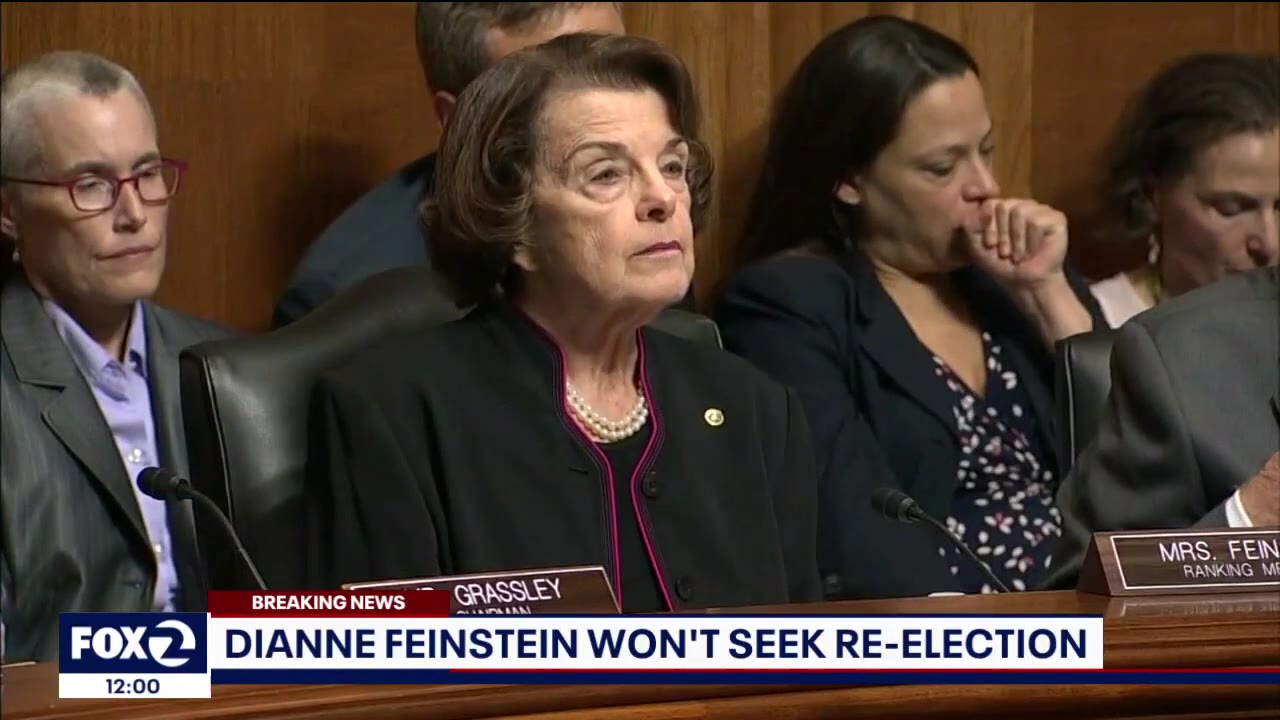California's Sen. Dianne Feinstein announces retirement

Dianne Feinstein retires: looking back on career of pioneering senator
Sen. Dianne Feinstein announced she will not seek re-election after her current term ends in 2024. Former Sen. Barbara Boxer joins KTVU to discuss Feinstein's legacy while KTVU's Brooks Jarrosz reviews some of the major moments in her career.
WASHINGTON, D.C. - California’s longest-serving senator, Sen. Dianne Feinstein, will not run for reelection next year.
The announcement was made Tuesday on Twitter and on her official website. However, the public announcement appears to have come as a surprise to Feinstein, according to multiple reports.
When asked about her retirement, she told reporters,"I haven't made that decision, I haven't released anything."
Feinstein's staffer injected telling the senator "We put out the statement."
Soon after, Feinstein is heard on audio recording telling reporters that, "So it is what it is. I think the time has come."
According to the initial announcement, Feinstein said she plans to remain in office through the end of her term, which ends at the end of 2024.

Sen. Feinstein announces retirement
Sen. Dianne Feinstein announced she will not seek reelection when her current term expires at the end of 2024. Feinstein, at 89, is the oldest member of Congress. She was first elected to the Senate in 1992.
"I am announcing today I will not run for reelection …but intend to accomplish as much for California as I can through the end of next year when my term ends," Feinstein tweeted. "Even with a divided Congress, we can still pass bills that will improve lives."
At 89 years old, Feinstein is the oldest senator.
She had been dogged by accusations in recent years that her effectiveness in the Senate has been hindered by her age.
Other Democrats had already jumped in to run for her seat, even before she made the inevitable announcement.
Democratic Reps. Katie Porter of Irvine and Adam Schiff of Burbank launched rival Senate campaigns in recent weeks. Earlier this month, former House Speaker Nancy Pelosi said she would support Schiff if Feinstein did not seek re-election.
Rep. Barbara Lee of Oakland is expected to jump into the contest as well.

Congressman Schiff announces Senate run
Rep. Adam Schiff (D-Burbank) announced that he is running for U.S. Senate in California in 2024, a seat the may be vacated if Sen. Dianne Feinstein decides to step down.
In recent years, questions have arisen about Feinstein's cognitive health and memory, though she has defended her effectiveness.
Feinstein was first elected to the Senate in 1992. Previously, she became mayor of San Francisco after the assassination of then-Mayor George Moscone and city Supervisor Harvey Milk in 1978.
Feinstein will be remembered for her fight against the "epidemic of gun violence." She achieved the passage of the landmark, federal Assault Weapons Ban in 1994 and has advocated for its reinstatement since it expired in 2004.
In 2019, she introduced three pieces of gun safety legislation in the Senate: an updated assault weapons ban, the extreme risk protection order act to help states develop court processes that allow family members to keep guns out of the hands of dangerous individuals and a bill to raise the federal age to purchase assault weapons and high-capacity magazines from 18 to 21.
Her priorities have also been on preventing and combating wildfires, mitigating the effects of drought, responding to the homelessness crisis, and ensuring Americans have access to affordable, high-quality health care.

